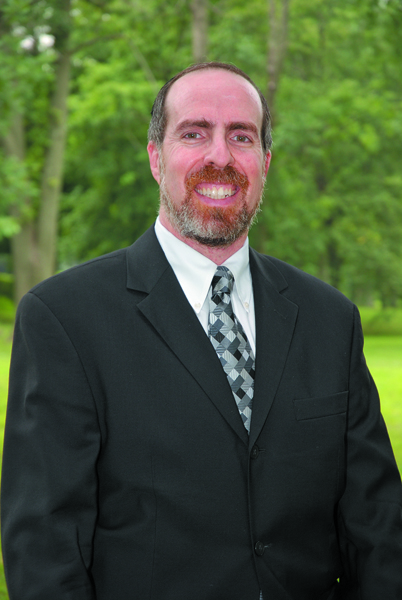
Is there anyone who is not judged by Hashem upon his or her leaving this world? Most of us are under the impression from the Tanach and Chazal that everyone must submit to Hashem’s judgment after 120 years. However, Rav Moshe Feinstein in his Teshuvot Igrot Moshe presents an astounding chidush (innovative idea), that some unique individuals are admitted to Gan Eden without a judgment.
Rav Moshe was asked about a common question that also emerged in regard to the passing of Sandy Bodenheimer, zt”l, of Teaneck—when a death occurs late on Friday or on a Shabbat or Yom Tov, does the family begin reciting Kaddish before the burial? This issue is subject to a debate between the two premier commentaries to the Yoreh Deiah section of the Shulchan Aruch, the Shach and the Taz. The Taz argues that Kaddish begins before the burial, noting that the Kaddish is not linked to the mourning observances of shiva. The Shach, though, disagrees, pointing out to the fact that the purpose of Kaddish is to spare the deceased from punishment in Gehinnom. The Shach notes that such potential punishment does not begin until after the burial, and therefore Kaddish before burial is not necessary. The Shach concludes that he believes that the common practice in such situations is not to recite the Kaddish until after the burial. Acharonim continue to debate this issue until our days.
Hacham Ovadia Yosef in his Teshuvot Yabia Omer rules in accordance with the Taz. He argues, citing from the Ari HaKadosh, that the purpose of Kaddish is not merely to spare the departed from the suffering of Gehinnom, but to elevate the soul higher and higher in Gan Eden. Rav Moshe Feinstein arrives at the same conclusion but for a different reason. Rav Moshe argues that there is a purpose to Kaddish prior to burial. He argues that the recital of Kaddish may spare the departed from being brought to judgment by Hashem. This is a significant accomplishment since the Gemara describes judgment by Hashem as an experience of charada, i.e. extremely frightening.
When I presented Rav Moshe’s idea in a shiur delivered at Congregation Shaarei Orah, the Sephardic Congregation of Teaneck, beloved member Jack Varon reacted with great surprise. He asked for Rav Moshe’s source that some are spared from Hashem’s judgment. I responded that I am unaware of such a source, but that Rav Moshe was a very creative thinker and perhaps has discovered a breakthrough idea. Perhaps we can even apply “Tzadik gozer v’Hakadosh Baruch Hu mekayem—Hashem fulfills a tzadik’s decree,” and thus Hashem might even adjust His practice based on Rav Moshe’s assertion! I should note that anyone who is familiar with Rav Moshe Feinstein and how he lived his life is well aware that Rav Moshe was undoubtedly a tzadik of the highest order.
If anyone fits the description of a soul that went directly to Gan Eden without judgment it is Sandy Bodenheimer, zt”l. It is difficult to imagine Mrs. Bodenheimer having committed any sin. She was perhaps the kindest and most giving person one could ever meet. She showed respect and kindness to everyone. Rav Pruzansky, in his moving eulogy for Mrs. Bodenheimer, noted that she even posed she’elot regarding lashon hara—whether it is permitted to say certain less-than-positive comments.
Thus, in response to Jack Varon’s question about the source for Rav Moshe’s assertion, I believe the source does not appear in the Gemara or Midrash. Rather, Rav Moshe observed people such as Sandy Bodenheimer and concluded that it is obvious that there is no need for such great people to stand in judgment before their Maker upon departing this world.
Thank you, Mrs. Bodenheimer, for all the kindness you showed to so many people and for the shining example of the greatness that each of us is capable of achieving.
Rabbi Haim Jachter is the rabbi of Congregation Shaarei Orah, the Sephardic Congregation of Teaneck.
By Rabbi Haim Jachter










